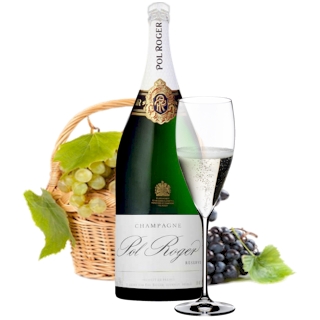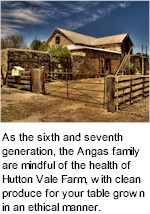


Homeland to rolling hills and big red gums, some over 400 years old, with girths too big to wrap your arms around. The farm has produced a wide range of things since its inception, from fresh and dried fruit, to tobacco, sheep, cattle and grapes. Even ostriches were farmed here 160 years ago for their feathers & leather. Each generation has adapted to the changes of life around them, working hard over the last 170 years to promote and enhance the natural environment of our family farm. Being respectful of the authority of Mother Nature, and aiming for the farm’s produce to capture what the soils and the seasons will allow, has always been at the heart of Hutton Vale philosophy.

Sheep have grazed freely across the paddocks of Hutton Vale Farm for over 160 years. The White Suffolk Merino cross is strong and resilient, which is very well suited to the farm’s environment. The farm manages a closed flock and all lambs are born on farm. With the focus on quality and superior flavour, a non stress philosophy in raising livestock means a small scale winemaking operation. With a happy and contented life for the the animals, being raised in a stress free manner allows the flavour of lamb to shine through and the meat to be tender. By the same token, happy lambs lay cleaner, more wholesome ferilizer, a tonic for the realization of the finest and most bountiful harvests.
Colin Angas was quick to realise the potential of Eden Valley for exceptional Riesling, and planted a vineyard on gentle slope in the 1960s. The pedigree and provenance of the Shiraz vineyards at Hutton Vale Farm is also very impressive. The old block was planted in the 1960s with cuttings taken from the nearby Mount Edelstone vineyard. 50 years or more down the track, the old dry grown vines continue to survive, the dry conditions a perfect foil for the natural vigour of Shiraz.
Hardly anyone was planting Cabernet in the Barossa when the Angas family was establishing their vineyards in the 1960s, so it’s no surprise it took until the late 1990s for the variety to find its way onto Hutton Vale Farm. Whilst it may have been a late starter, the quality of the fruit grown there suggests it has a long future in this part of the world.
As sixth and seventh generation, the Angas family are mindful of their stewardship of Hutton Vale Farm, running a mixed farming business on the original farm holdings, with produce for your table grown in an ethical manner, with its origins in clean soil. Hutton Vale's approach to caring for vineyards is simple, respecting mother nature to yield only what the landscape and seasons allow. Their wine is the produce of a friendly partnership, made by eminent Barossa peer Kym Teusner, who has long considered the Hutton Vale fruit to be Barossa’s finest.

























